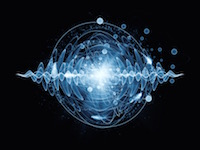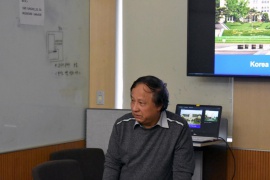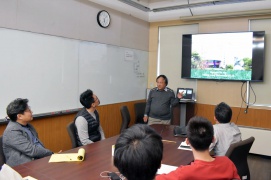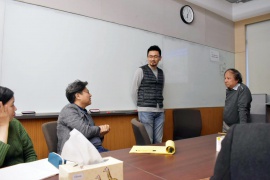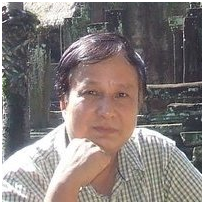
- Speaker: Prof. Nguyen Ba An (Thang Long University, Vietnam)
- Date: Wednesday March 27, 2019 05:00pm
- Place: Jungho Seminar Room
Secure communication is a legitimate demand of the mankind. In order for one party (Alice) to send a confidential message to another party (Bob), the two have to share beforehand a secret key which must be used only once to encode/decode the message. Such a “one-time” private-key system for communication is absolutely secure but inconvenient in practice. Of current use is the public-key system which is very convenient practically, but its (unproven) security will be broken if quantum computers come into birth. To guarantee unconditional security even in the presence of quantum computers, quantum key distribution (QKD) needs to be deployed prior to an actual communication. That is, resorting to the laws of Nature, Alice and Bob are able to remotely establish secret keys under the nose of any eavesdroppers. However, what should be done in emergent circumstances when Alice and Bob wish to directly exchange their information but do not have enough time to implement a QKD protocol? In other words, can they still securely "talk" with each other without a prior key distribution? We show that this turns out to be possible by means of the so-called "quantum dialogue", which rationally exploits the quantum entanglement resources, quantum operations and quantum measurements [1,2]. Somewhat more surprisingly, even quantum nonselective measurements (i.e., measurements without reading the outcome) make sense to the quantum dialogue [3], an unbelievably counterintuitive fact in our everyday life!
[1] N. B. An, Phys. Lett. A 328, 6 (2004): Quantum dialogue
[2] N. B. An, J. Kor. Phys. Soc. 47, 562 (2005): Secure dialogue without a prior key distribution
[3] N. B. An, Adv. Nat. Sci.: Nanosci. Nanotech. 9, 025001 (2018): Quantum dialogue by nonselective measurements
